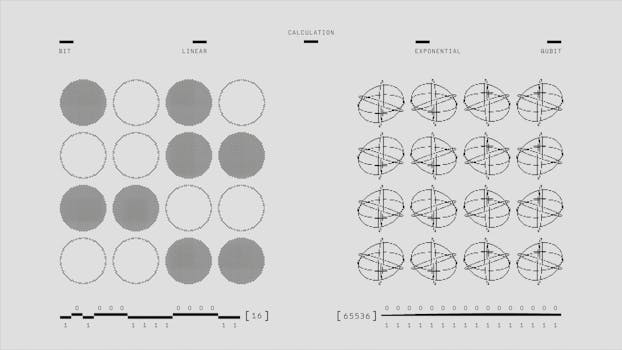
Understanding Quantum Mechanics and its Implications for Reality
Introduction to Quantum Mechanics

Quantum mechanics is a branch of physics that studies the behavior of matter and energy at an atomic and subatomic level. At these scales, the classical laws of physics do not apply, and strange, seemingly random phenomena govern the behavior of particles. The focus keyword: Quantum Mechanics has been a topic of fascination for scientists and philosophers alike, as it challenges our understanding of reality and the nature of existence.
The principles of quantum mechanics were first introduced by Max Planck, Albert Einstein, and Niels Bohr in the early 20th century. They discovered that energy comes in discrete packets, called quanta, and that particles can exhibit wave-like behavior. This led to the development of the Schrödinger equation, a mathematical framework for describing the behavior of quantum systems.
Implications of Quantum Mechanics for Reality

The implications of quantum mechanics for our understanding of reality are profound. The theory suggests that, at a fundamental level, reality is made up of probabilities rather than definite outcomes. This means that the act of observation itself can influence the behavior of particles, a phenomenon known as the observer effect.
Furthermore, quantum mechanics introduces the concept of entanglement, where particles become connected in such a way that their properties are correlated, regardless of the distance between them. This has led to the development of quantum teleportation and quantum computing, which have the potential to revolutionize the way we process information.
Quantum Mechanics and the Nature of Reality

The implications of quantum mechanics for our understanding of reality are not limited to the physical world. The theory also challenges our understanding of time, space, and causality. Quantum mechanics suggests that time is relative, and that the passage of time is dependent on the observer’s frame of reference.
In addition, quantum mechanics introduces the concept of non-locality, where particles can be connected across vast distances, challenging our classical understanding of space and causality. This has led to a re-evaluation of the concept of reality, with some theories suggesting that reality is fundamentally non-local and interconnected.
Conclusion

In conclusion, quantum mechanics is a fascinating and complex branch of physics that challenges our understanding of reality. The implications of quantum mechanics are far-reaching, and the theory has the potential to revolutionize the way we understand the world and our place within it. As we continue to explore the mysteries of quantum mechanics, we may uncover new and exciting insights into the nature of reality itself.






